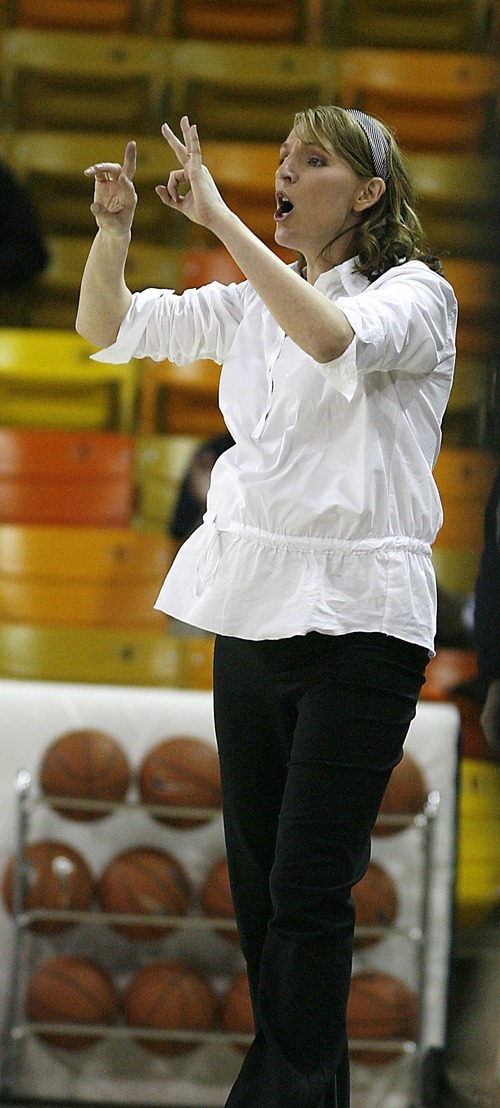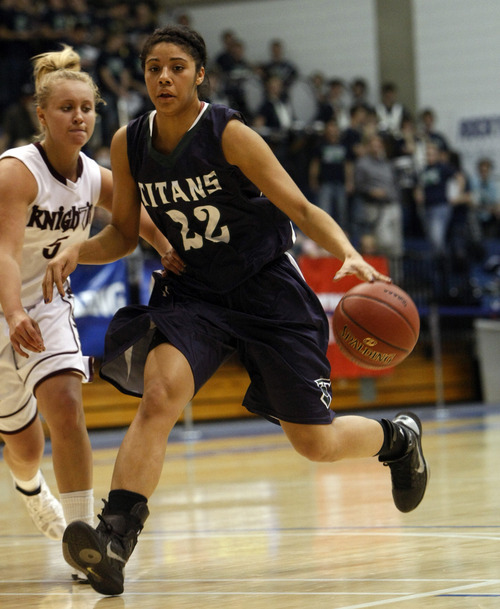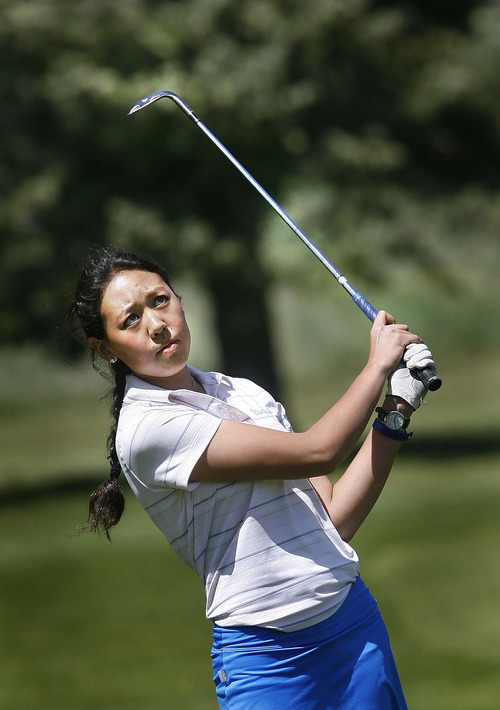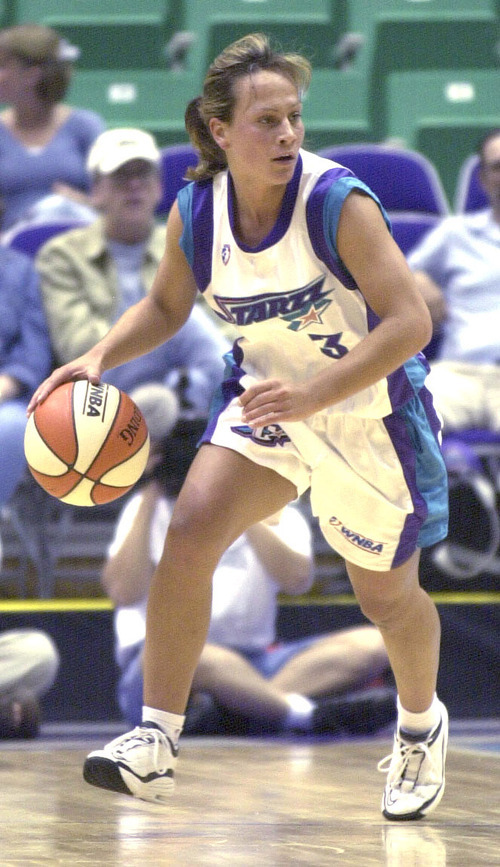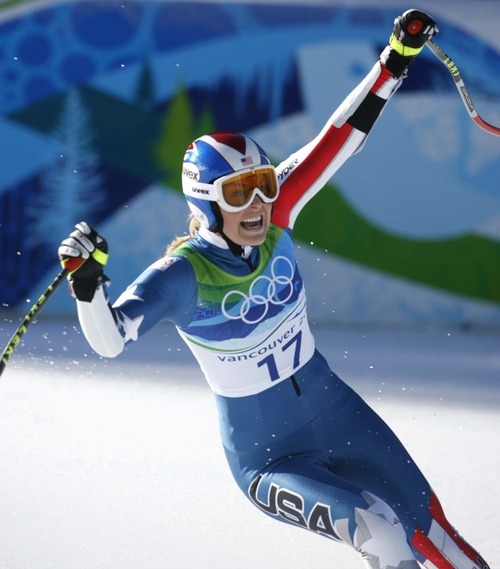This is an archived article that was published on sltrib.com in 2012, and information in the article may be outdated. It is provided only for personal research purposes and may not be reprinted.
"Women will become masculine if they play sports."
Norma Carr sat in a conference room and absorbed the words like punches. In the early 1970s as a teacher at Davis High School, she advocated to the Utah High School Activities Association for the inclusion of sanctioned girls' sports. Gymnasts held their own championship each year without state support or insurance. When two schools let girls play on their tennis teams, the girls were excluded from state competitions.
The UHSAA's rejections were based in sexist clichés. Carr, a former University of Utah coach who has been the athletic director at Salt Lake Community College for 24 years, remembers being told women should be "barefoot and pregnant in the kitchen."
If a woman played sports, administrators said, her uterus would fall out.
Forty years after Title IX became a law on June 23, 1972, women are fully intact and, in the sports world, thriving. Even in Utah.
The U. of U.'s gymnastics program has won 10 national championships, basketball teams annually appear in the NCAA Tournament and the UHSAA last year reported an all-time high 23,304 girls participated in high school sports.
It's been a productive 40 years since 1972.
"Back in those days, if you were very active in sports you were considered to be not as feminine as you should be," longtime Brigham Young University coach and administrator Elaine Michaelis said, "but that perspective changed as we got opportunities and people began to see that, yes, you could be active and still maintain the femininity in your life."
Women everywhere faced steep challenges earning equal opportunities to participate in sports. Title IX, while not a sports-specific law, legislated that no one could be "on the basis of sex, excluded from participation, be denied the benefits of or be subjected to discrimination under education program or activity receiving federal financial assistance."
It was landmark legislation, and has required colleges and universities to provide the same opportunities for men and women.
Carr said Utah, especially, needed the boost from Title IX to become more progressive toward women across the board. Title IX passed Congress the year before The Church of Jesus Christ of Latter-day Saints launched a vigorous campaign against the Equal Rights Amendment in the Utah Legislature and across the country.
Carr felt cultural push-back when Title IX was passed.
"It was an awful fight because basically 90 percent of the principals that were on the high school boards were LDS bishops or stake presidents, the upper echelon, and they truly believed women shouldn't be playing sports," she said. "Those biases came into the discussion very often."
Women who grew up in Utah before Title IX played in separate gyms from boys' teams — when they were allowed to play. Rather than competing against other schools, they were more often limited to "play days" once a year, when they could play sports against their own classmates.
The Mormon Church, which has long supported sports in its wards and stakes, offered girls' sports. Jessie Embry, the assistant director of the Charles Redd Center for Western Studies at BYU and an LDS sports historian, said women's sports were emphasized differently from men's.
"Women's sports in the church and on the national level were seen as a socializing activity," she said, "a chance for women to get together."
Women playing ward sports wore long pants, Carr said, and, depending on the bishop or stake president, were not encouraged to be especially competitive.
"What was good for men was never good for women," she said.
Michaelis coached volleyball, basketball, field hockey and softball at BYU over a 43-year career and credited Title IX for allowing women to experience what they could previously only observe.
"Before, we were having competitive experiences," Michaelis said. "But they were so limited we didn't have the overall benefit of it. We had good social opportunities and good opportunities to compete. But we were real excited to move forward and see what the men had and see that was something we were able to have."
It's a time that modern athletes and those involved in athletics can hardly fathom. An all-time high of 200,000 women participated in intercollegiate athletics last year, according to an annual study conducted by BYU alumnae Linda Carpenter and Vivian Acosta.
"I can't even imagine what it would be like if my daughter wasn't given the same opportunities I was," U. of U. women's basketball coach Anthony Levrets said.
Title IX has been lauded for more than its impact in the sports world. Women interviewed by The Tribune said the opportunities athletics brought boosted them in the worlds of business and administration.
Carr, who oversees both men's and women's programs at SLCC, said she nearly didn't apply for her job in 1989.
"I thought no way in conservative Utah would they ever hire a woman to be athletic director over both men and women," she said.
A dozen years earlier, she'd been told there was no place for women in sports.
Carr and others, however, believe Title IX provides a framework for more progress; in that sense, the 40th anniversary is less a celebration than a checkpoint. And, at 40, the question of Title IX is not whether it is over the hill, but how much higher women in sports can climb. Girls' sports in Utah high schools
Year of first UHSAA championship
Swim • 1973
Volleyball • 1973
Gymnastics • 1973*
Tennis • 1974
Track • 1974
Basketball • 1976
Cross Country • 1979
Soccer • 1989
Softball • 1990
Drill Team • 1983
Golf • 2008
*Ended in 1989 A history of Title IX
Oct. 13, 1967 • President Johnson signs an executive order which prohibits federal contractors from employment practices that discriminate on the basis of sex, the order becomes the groundwork for Title IX
June 23, 1972 • Title IX is signed into law by President Nixon
Sept. 20, 1973 • The Battle of the Sexes, Billie Jean King defeats Bobby Riggs in a tennis match deemed the "Battle of the Sexes"
Feb. 17, 1976 • The NCAA files a lawsuit challenging the legality of Title IX, claiming no athletic programs receive direct funds. The suit is dismissed.
1976 • Utah's gymnastics team competes in its first season, finishing 10th at the AIAW Championships and with a 5-3 record overall
1978 • Heath, Education and Welfare Department provides final guidelines for schools to be in compliance
1981-82 • The NCAA crowns Division 1 national champions for the first time in women's cross country, field hockey, volleyball, swimming, basketball, golf, gymnastics, tennis, outdoor track and softball.
1982 • Utah's gymnastics team wins its first of five straight NCAA titles
Aug. 7, 1984 • Led by Cheryl Miller, the U.S. Women's Basketball team wins the gold medal in the 1984 Olympics
Nov. 30, 1991 • The first FIFA Women's World Cup is held in China. The U.S. beats Norway 2-1 in the final.
1992 • The first gender equity study by the NCAA reveals men constitute 70 percent of student-athletes and receive 70 percent of scholarship funds even though women make up 55 percent of undergraduate students.
1993 • Howard basketball coach Sanya Tyler wins a sex discrimination case under Title IX, receiving $2.4 million, which was later reduced to $1.1 million, because she was paid less than the men's coach. The decision is the first time a monetary award is given under the Title IX law.
June 5, 1993 • Julie Krone guides Colonial Affair to a win in the Belmont Stakes, becoming the first woman to win a Triple Crown title
1995 • The University of Utah adds women's soccer
Jan. 16, 1996 • The Office for Civil Rights issues guidelines detailing a 'three-prong test,' schools can use to meet Title IX guidelines in opportunities given to women
April 24, 1996 • Women's basketball announces the formation of the WNBA with the slogan "We Got Next"
1996 • Women's soccer and softball are part of the Olympic program for the first time. The U.S. wins gold in both sports in the Games held in Atlanta.
June 23, 1997 • The Utah Starzz, an inaugural team in the WNBA, becomes the first team to pass the 100-point mark in a 102-89 win over the LA Sparks.
Feb. 17, 1998 • U.S. Women's Ice hockey wins the gold medal, beating Canada 3-1, in the first year the sport is included in the Olympic Games
Dec. 22, 1998 • The American Basketball League, announced it was suspending operations during its third season
July 10, 1999 • U.S. vs. China, women's soccer enjoys its biggest surge in popularity with the U.S. beating China in the World Cup
June 7, 2001 • Utah Starzz center Margo Dydek records the WNBA's second triple-double, setting a league record for blocked shots in the process with her 12 points, 11 rebounds and 10 blocks in a 82-79 win over Orlando
2001 • Enrollment in women's athletic programs increases dramatically with 41.5 percent of high school athletes in the U.S. being female. Before Title IX, it was only 7.4 percent
June 22, 2002 • Utah Starzz forward Natalie Williams records the first 20/20 performance in WNBA history when she scores 22 points and makes 20 rebounds in a 77-61 win over Sacramento
Dec. 5, 2002 • The WNBA announces the Utah Starzz will relocate to San Antonio for the 2003 season
March 17, 2005 • The Department of Education issues a policy clarification stating that schools may survey female students' interest in sports via e-mail. Al failure to respond is equated as a lack of interest, concerning Title IX backers.
2006 • Utah's women's basketball team plays in the Elite Eight, losing to eventual champion Maryland in overtime
Aug. 6, 2007 • Lorena Ochoa wins the British Open, becoming the first woman to win a championship on Scotland's sacred course for men
April 20, 2008 • Danica Patrick becomes the first woman to win an Indy race, winning the Japan 300
2008 • Dara Torres, a 41-year-old mother of two, wins three medals in the 2008 Olympics, giving her a total of 12 medals
Jan. 24, 2010 • Displaying 'girl power' Kelly Kulick becomes the first woman to win the Professional Bowlers Association Tournament
April 2010 • The Obama administration rescinds the earlier provision allowing schools to presume a 'lack of interest' if they don't respond to surveys judging students' interest in sports.
March 4, 2011 • Utah's gymnastics team sets an NCAA record with 15,558 fans in attendance to watch its meet against No. 1 Florida, which beat the Utes 197.0-196.75
March 28, 2011 • Elaine Elliott retires as coach of Utah's women's basketball team, leaving as the winningest coach in MWC history, having compiled a 582-234 record in her 27 years as coach
Aug. 3, 2011 • Three female wrestlers who were cut from the varsity team at UC Davis prevail as a federal court finds the university failed to provide sufficient athletic opportunities for women. UC Davis settles, paying more than $1.3 million to cover attorney fees.


